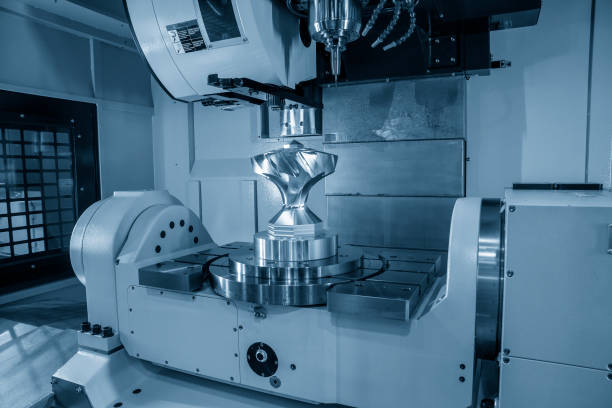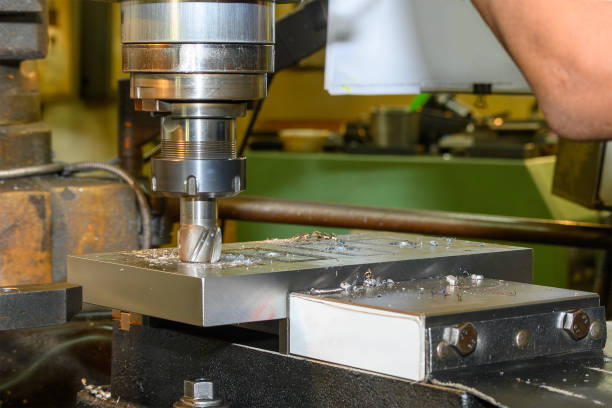Workflow Software Solutions for Modern Machine Shops: A 2025 Review

In today's fast-paced manufacturing landscape, machine shops face numerous challenges — from increasing customer demands to complex production processes. To stay competitive, these businesses must embrace digital solutions that streamline operations, improve quality control, and boost overall efficiency.
Enter Manufacturing Execution Systems (MES): a game-changing software solution designed to revolutionize the way machine shops manage their production workflows. By connecting machines, employees, and processes in real-time, MES provides unprecedented visibility and control over the entire manufacturing process.
In this article, we'll dive deep into the world of MES for machine shops, exploring its key features, benefits, and real-world success stories. We'll also guide you through the process of choosing the right MES for your business and preparing for a successful implementation.
What is a Manufacturing Execution System for Machine Shops?
A Manufacturing Execution System (MES) is a comprehensive software platform that monitors, tracks, documents, and optimizes the entire manufacturing process from raw materials to finished products. It provides real-time visibility into shop floor operations, connecting machines, employees, and processes to create a seamless, data-driven workflow.
At its core, an MES enables paperless manufacturing by leveraging digital work instructions, quality checks, and production data. This not only reduces manual errors and paperwork but also streamlines communication between different departments and systems, such as ERP, to ensure smooth operations.
For machine shops specifically, an MES offers a range of tailored features designed to address the unique challenges of precision machining and complex assembly processes. These include:
- Real-time machine monitoring: An MES integrates with CNC machines, 3D printers, and other equipment to automatically capture production data, monitor machine status, and identify potential issues before they cause downtime.
- Advanced planning and scheduling: By optimizing production schedules based on real-time machine availability, material inventory, and customer demand, an MES helps machine shops minimize downtime and maximize throughput.
- Paperless work instructions and quality management: An MES digitizes work instructions, blueprints, and quality checksheets, making them easily accessible on the shop floor. It guides operators through each production step with visual aids and enforces quality checks to ensure consistent product quality.
Implementing an MES in a machine shop can lead to significant improvements in efficiency, productivity, and quality control. For example, a precision machining company that deployed an MES achieved a 30% increase in on-time delivery and a 20% reduction in scrap rates, while also improving customer satisfaction through real-time order tracking and communication.
When choosing an MES for your machine shop, it's essential to consider factors such as scalability, integration with existing systems, customization options, user-friendliness, and customer support. Look for a solution that can grow with your business, seamlessly integrate with your ERP and CAD/CAM software, and be tailored to your specific manufacturing processes and needs — like the flexible, feature-rich MES offered by Phasio.
Preparing your machine shop for MES implementation involves assessing your current processes and data readiness, defining clear goals and metrics for success, engaging stakeholders from all departments, and developing a phased implementation plan. By providing comprehensive training and support to employees during and after the implementation, you can ensure a smooth transition and maximize the benefits of your new MES.
As the manufacturing landscape continues to evolve, embracing digital solutions like MES will become increasingly critical for machine shops looking to stay ahead of the competition. By harnessing the power of real-time data, paperless workflows, and advanced automation, you can transform your shop floor into a lean, agile, and future-proof operation — positioning your business for long-term success in the Industry 4.0 era.
Key Benefits of Implementing a Machine Shop MES
Improved Efficiency and Productivity
Adopting a Manufacturing Execution System (MES) in a machine shop transforms efficiency and productivity by streamlining operations. By capturing machine and employee data through automated systems, MES eliminates reliance on manual data entry, leading to enhanced data integrity and reduced errors. This shift enables personnel to engage in more strategic activities, leveraging their skills where most impactful. Furthermore, MES employs intelligent algorithms to refine scheduling and resource deployment, ensuring operational fluidity and heightened output. By pinpointing production inefficiencies through real-time analytics, MES facilitates immediate adjustments, maintaining optimal performance levels.
Enhanced Quality Control
MES significantly bolsters quality control by embedding thorough quality assurance protocols at each phase of production. It empowers manufacturers with comprehensive traceability of components and materials, crucial for meeting compliance standards and conducting detailed root cause analyses. This robust traceability framework not only aligns with regulatory demands but also ensures swift resolution of quality issues. MES integrates seamlessly with existing quality systems, reinforcing a culture of consistency and excellence in product quality. This integration supports organizations in adhering to rigorous customer specifications and industry norms, thereby enhancing their competitive edge.
Increased Visibility and Control
MES provides an unprecedented level of visibility and control over manufacturing processes through its centralized digital platform. Managers gain access to comprehensive insights into production via advanced dashboards, facilitating strategic oversight of key performance metrics such as equipment utilization and production volumes. The ability to remotely monitor and adjust operations is particularly advantageous for manufacturers with dispersed facilities, ensuring cohesive management of global production activities. This augmented oversight capability enables informed decision-making, driving continuous improvement and operational excellence across the enterprise.
Essential Features of a Modern Machine Shop MES
Real-Time Machine Integration and Monitoring
A sophisticated MES connects seamlessly with a diverse range of manufacturing equipment, utilizing advanced connectivity to gather production data instantly. This system provides comprehensive visibility into machine operations, enabling the detection of irregularities in performance metrics. By leveraging real-time analytics, the MES anticipates maintenance needs, thus optimizing machine uptime and operational efficiency.
Advanced Planning and Scheduling
Cutting-edge MES solutions excel in synchronizing production schedules with live inputs from inventory levels and customer orders. The system accommodates fluctuations by dynamically adjusting schedules, ensuring resources align with production demands. Through an intuitive, graphical interface, planners can efficiently allocate resources, adapting swiftly to changes and maintaining production continuity.
Paperless Work Instructions and Quality Management
Modern MES platforms eliminate the need for physical documents by digitizing essential production instructions and quality protocols. Operators receive step-by-step guidance enhanced by immersive visual tools and intelligent decision support, ensuring accuracy and compliance. By capturing detailed quality metrics, the MES promotes traceability and fosters a cycle of ongoing process refinement.
Choosing the Right MES for Your Machine Shop
Selecting the most suitable Manufacturing Execution System (MES) for your machine shop involves evaluating its capability to adapt to your business's evolving needs. It's crucial to identify an MES that can effectively navigate the transition from handling the demands of a small-scale operation to managing the complexities of a large-scale production facility. A forward-thinking MES should offer the adaptability required to support business growth, allowing for seamless scaling without loss of operational integrity.
The ability to seamlessly connect with your existing technology stack is imperative when selecting an MES. The integration of such a system should extend beyond mere connectivity, fostering a comprehensive network that bridges ERP, CAD/CAM, and other essential software systems. This interconnected approach ensures that all facets of production are synchronized, providing a unified view of operations that enhances strategic planning and execution.
An MES's capacity for customization is a pivotal factor in aligning it with your shop's distinct processes and technological configurations. By offering modular features that can be tailored to address specific challenges, a customizable MES empowers machine shops to optimize workflows and refine their manufacturing strategies. This flexibility ensures that the system remains relevant and effective as business requirements shift over time.
Ease of use is a non-negotiable attribute for any MES, as it directly influences the rate of adoption and overall user engagement. A system designed with intuitive navigation and straightforward functionality facilitates rapid onboarding and encourages widespread utilization. This user-centric design approach minimizes training overheads and allows employees to leverage the system's full potential without delay.
Finally, robust support services and continuous enhancements are critical to the sustained performance of the MES. Opt for a provider that commits to delivering proactive assistance and regular updates, ensuring the system evolves in tandem with technological advancements. Such a partnership not only resolves issues efficiently but also maintains the MES's relevance, safeguarding its value as a long-term asset for your machine shop.
Real-World MES Success Stories
Case Study 1: Precision Machining Company
A leading precision machining company sought to enhance its operational efficiency by integrating a Manufacturing Execution System (MES) tailored to its specific needs. The MES implementation targeted improvements in quoting, scheduling, and overall production processes, which were previously challenged by fragmented workflows and manual oversight. By utilizing an MES, the company established a cohesive digital framework that linked disparate manufacturing processes, facilitating smoother operations and data-driven decision-making.
This strategic integration led to significant operational gains. The company reported a marked improvement in delivery timelines, reflecting the MES's capability to coordinate scheduling with precision and adapt to dynamic production demands. Furthermore, the system's analytical capabilities enabled the company to achieve a noticeable decrease in material waste, enhancing sustainability and cost-effectiveness. These improvements not only optimized internal processes but also enhanced client relations, providing customers with greater transparency and reliability in order fulfillment.
Case Study 2: Additive Manufacturing Service Bureau
In addressing the complexities of additive manufacturing, a service bureau leveraged a sophisticated MES to manage its intricate production workflows and extensive material handling requirements. The MES served as a central hub for coordinating multiple 3D printing lines, allowing for detailed oversight and streamlined operations. This integration empowered the bureau to harness real-time data for enhanced production control.
The MES implementation yielded impressive results, notably decreasing production lead times through more efficient workflow management. This optimization contributed to higher machine throughput, allowing the bureau to capitalize on increased production capacity. Leveraging these efficiencies, the bureau expanded its service offerings to include bespoke manufacturing solutions, thereby accelerating product development cycles and strengthening its competitive position in the market.
Preparing Your Machine Shop for MES Implementation
Embarking on the journey of implementing a Manufacturing Execution System (MES) in a machine shop requires a structured approach to ensure successful integration and sustained benefits. Begin by conducting an in-depth analysis of your shop's operational landscape to pinpoint areas for improvement. This involves evaluating current workflows and identifying technological gaps that the MES can address, ensuring a seamless alignment with your existing processes.
Establishing well-defined objectives for the MES is critical. Set specific, measurable outcomes that reflect your strategic priorities—such as enhancing cycle times or improving resource utilization. These targets will guide the implementation process, providing a clear framework to evaluate the system's impact over time. To ensure a holistic approach, involve representatives from all functional areas. Their diverse perspectives will contribute to a more comprehensive understanding of the MES's potential applications and benefits.
A gradual rollout strategy minimizes disruption and allows for incremental adjustments. Implement the MES in stages, focusing on different aspects of your operations to facilitate thorough testing and refinement. This approach ensures that each phase is optimized before moving forward, promoting a smooth transition and reducing operational risks.
Robust training programs and continuous support are essential for fostering user confidence and maximizing system utilization. Provide employees with hands-on training sessions designed to build familiarity with the MES's functionalities. Ongoing support mechanisms should be in place to address any challenges that arise, reinforcing a culture of adaptability and continuous improvement within your machine shop.
As the manufacturing landscape continues to evolve, embracing digital solutions like MES will become increasingly critical for machine shops looking to stay ahead of the competition. By harnessing the power of real-time data, paperless workflows, and advanced automation, you can transform your shop floor into a lean, agile, and future-proof operation — positioning your business for long-term success in the Industry 4.0 era. If you're ready to take your machine shop to the next level, we invite you to schedule a demo or try the platform to experience its capabilities firsthand and see how we can help you achieve your manufacturing goals.
.svg)



